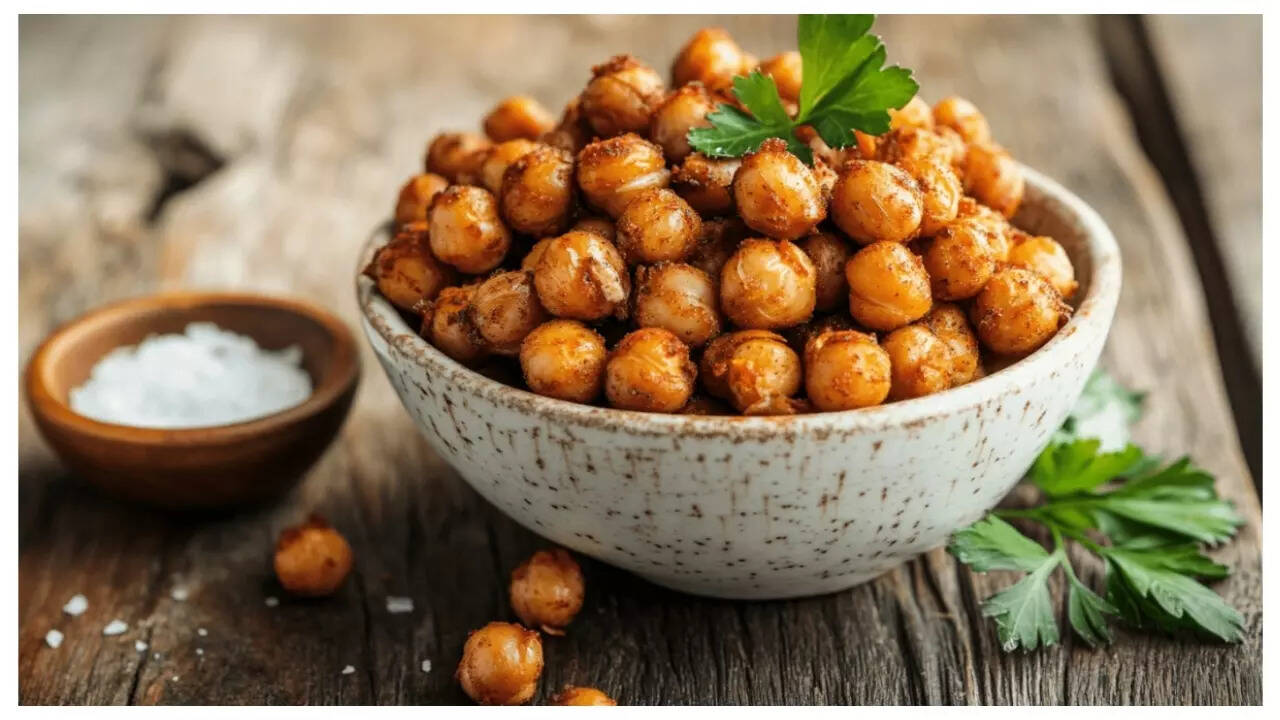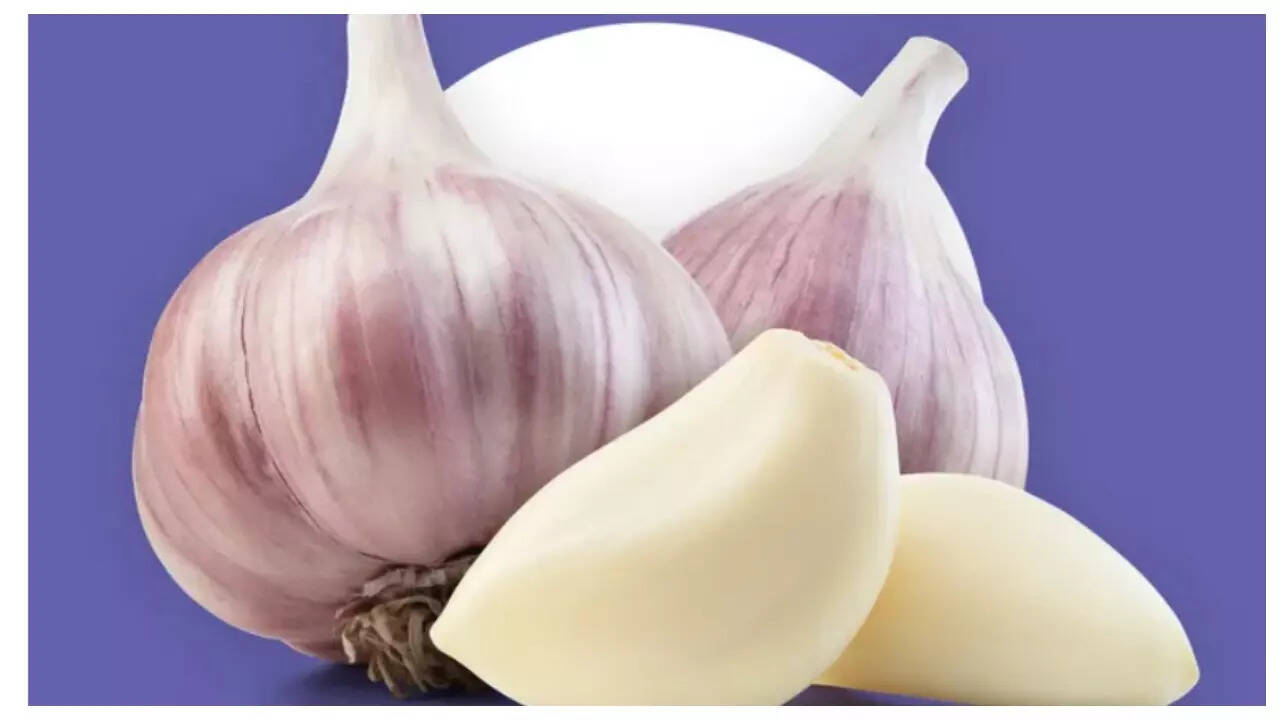 Most of us are aware of the fact that we need to consume enough fiber for a healthy digestion, and smooth bowel movement. However, despite that, most of us struggle to consume enough fiber, that leads to constipation and bloating. However, when it comes to food, there are many sources of fiber, that are easy to procure, and cook. Dr Saurabh Sethi, leading Gastroenterologist, trained at Harvard and Stanford, reveals the 4 high-fiber foods you might be otherwise ignoring…ChickpeasChickpeas, or chole, is popular all across the world. Roughly a fifth of their weight-about (18 to 22 percent) is fiber, split between soluble, and insoluble varieties, says Dr Sethi, that play a crucial role in smooth digestion and overall gut health. Apart from that, chickpeas supply galacto‑oligosaccharides, a fiber that feeds bacteria like lactobacilli in your gut, helping to fine‑tune digestion and boost magnesium absorption. Research suggests that chickpeas can help blood‑sugar levels and trim cholesterol, which together lower the odds of heart disease. A single cup of chickpeas delivers six grams of fiber, making it a satisfying heart‑friendly option. You can have chole as a curry, toss them into a salad, let them simmer in a stew, or blend them into hummus for a fiber boost.
Most of us are aware of the fact that we need to consume enough fiber for a healthy digestion, and smooth bowel movement. However, despite that, most of us struggle to consume enough fiber, that leads to constipation and bloating. However, when it comes to food, there are many sources of fiber, that are easy to procure, and cook. Dr Saurabh Sethi, leading Gastroenterologist, trained at Harvard and Stanford, reveals the 4 high-fiber foods you might be otherwise ignoring…ChickpeasChickpeas, or chole, is popular all across the world. Roughly a fifth of their weight-about (18 to 22 percent) is fiber, split between soluble, and insoluble varieties, says Dr Sethi, that play a crucial role in smooth digestion and overall gut health. Apart from that, chickpeas supply galacto‑oligosaccharides, a fiber that feeds bacteria like lactobacilli in your gut, helping to fine‑tune digestion and boost magnesium absorption. Research suggests that chickpeas can help blood‑sugar levels and trim cholesterol, which together lower the odds of heart disease. A single cup of chickpeas delivers six grams of fiber, making it a satisfying heart‑friendly option. You can have chole as a curry, toss them into a salad, let them simmer in a stew, or blend them into hummus for a fiber boost. GarlicGarlic is celebrated both for its flavor and its therapeutic virtues, yet few realise it also contains a healthy dose of two key fibers-inulin and oligofructose, according to Dr Sethi. Acting as prebiotics, these fibers nourish the microbes that call your gut ‘home’, helping to keep the ecosystem in equilibrium. An expanding body of research suggests that the blend of garlic’s fiber and its bioactive compounds, may aid in shedding weight, trimming fat, fine‑tuning cholesterol levels, and boosting performance-the tiny power plants that drive cellular energy. Including garlic in a recipe does more than brighten the palate; it quietly fortifies the gut microbiome, and keeps the metabolic engine humming. Research indicates that garlic can orchestrate shifts in gene expression linked to processing-a tweak that may make weight management a bit easier.
GarlicGarlic is celebrated both for its flavor and its therapeutic virtues, yet few realise it also contains a healthy dose of two key fibers-inulin and oligofructose, according to Dr Sethi. Acting as prebiotics, these fibers nourish the microbes that call your gut ‘home’, helping to keep the ecosystem in equilibrium. An expanding body of research suggests that the blend of garlic’s fiber and its bioactive compounds, may aid in shedding weight, trimming fat, fine‑tuning cholesterol levels, and boosting performance-the tiny power plants that drive cellular energy. Including garlic in a recipe does more than brighten the palate; it quietly fortifies the gut microbiome, and keeps the metabolic engine humming. Research indicates that garlic can orchestrate shifts in gene expression linked to processing-a tweak that may make weight management a bit easier. FlaxseedsFlaxseeds are powerhouses, packed with fiber and wholesome fats. 35 % of each seed is fiber-split between soluble, and insoluble varieties-offering support for hormonal equilibrium and encouraging smooth regular bowel function, says Dr Sethi. They also stand out as one of the best plant sources of omega‑3 fatty acids alpha‑linolenic acid, famed for its anti‑inflammatory action and cardiovascular safeguards. Beyond fiber and omega‑3s, flaxseeds provide a supply of high‑quality protein and phytoestrogens-plant‑derived compounds linked to hormone levels. Research indicates that sprinkling flaxseeds into one’s meals, can smooth bowels, trim cholesterol numbers, and soothe joints. You can add them into oatmeal, blend them into smoothies, swirl them through yogurt, or mix them into sweet treats for a hassle‑free fiber lift.Sunflower seedsSunflower seeds are a staple, on the go snack. They bring far more to the table than a mere crunch. A 100‑gram serving delivers 11.5 g of fiber including lignans and cellulose-fibers that bulk up stool, and support regular bowel movements. In addition, they are packed with unsaturated fatty acids, antioxidant vitamin E and essential minerals such as, magnesium, selenium and copper. These nutrients act in tandem to dampen inflammation, and may help lower cholesterol, thereby protecting heart health. Studies underscore that a steady intake of sunflower seeds can smooth out the gut’s imbalance, and may shrink the likelihood of disease.
FlaxseedsFlaxseeds are powerhouses, packed with fiber and wholesome fats. 35 % of each seed is fiber-split between soluble, and insoluble varieties-offering support for hormonal equilibrium and encouraging smooth regular bowel function, says Dr Sethi. They also stand out as one of the best plant sources of omega‑3 fatty acids alpha‑linolenic acid, famed for its anti‑inflammatory action and cardiovascular safeguards. Beyond fiber and omega‑3s, flaxseeds provide a supply of high‑quality protein and phytoestrogens-plant‑derived compounds linked to hormone levels. Research indicates that sprinkling flaxseeds into one’s meals, can smooth bowels, trim cholesterol numbers, and soothe joints. You can add them into oatmeal, blend them into smoothies, swirl them through yogurt, or mix them into sweet treats for a hassle‑free fiber lift.Sunflower seedsSunflower seeds are a staple, on the go snack. They bring far more to the table than a mere crunch. A 100‑gram serving delivers 11.5 g of fiber including lignans and cellulose-fibers that bulk up stool, and support regular bowel movements. In addition, they are packed with unsaturated fatty acids, antioxidant vitamin E and essential minerals such as, magnesium, selenium and copper. These nutrients act in tandem to dampen inflammation, and may help lower cholesterol, thereby protecting heart health. Studies underscore that a steady intake of sunflower seeds can smooth out the gut’s imbalance, and may shrink the likelihood of disease.

4 high-fiber foods you might be ignoring, as revealed by Harvard trained Gastroenterologist |
- November 15, 2025
